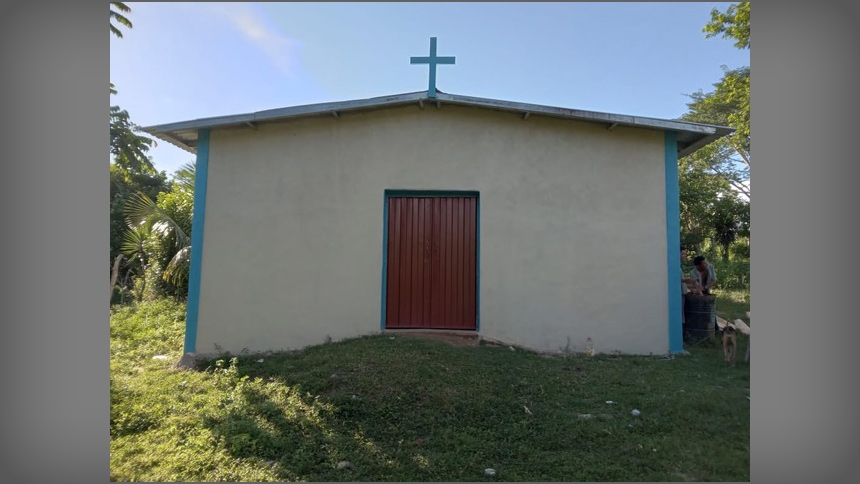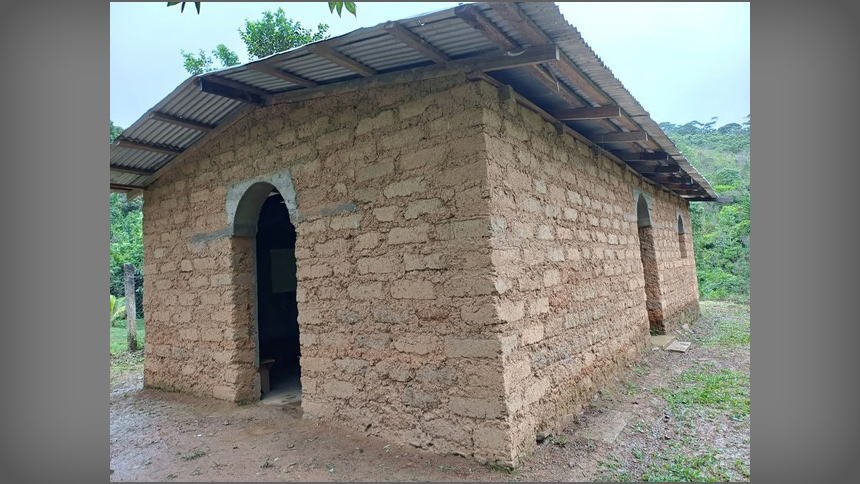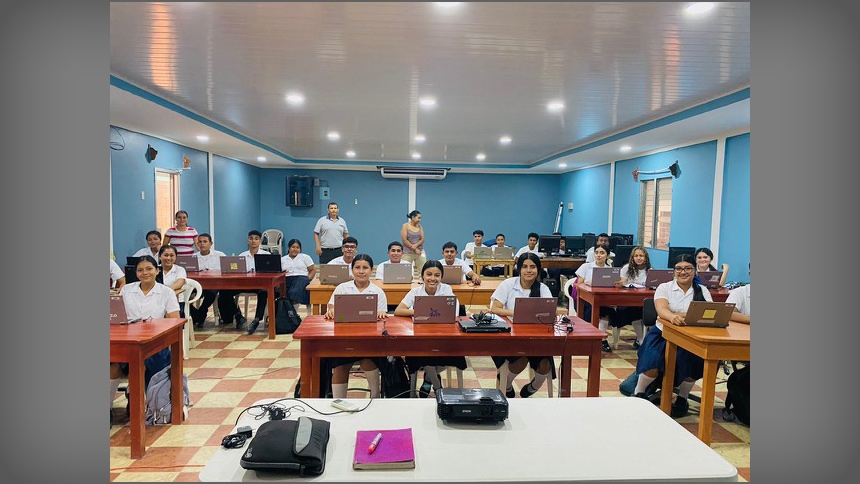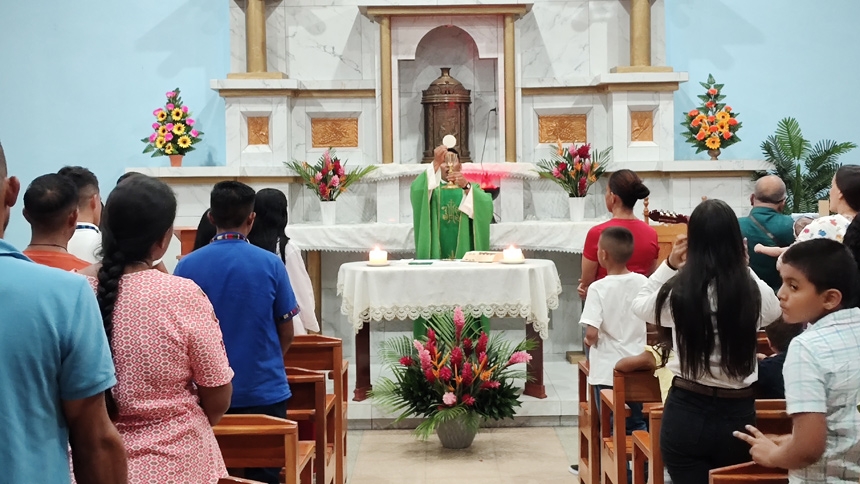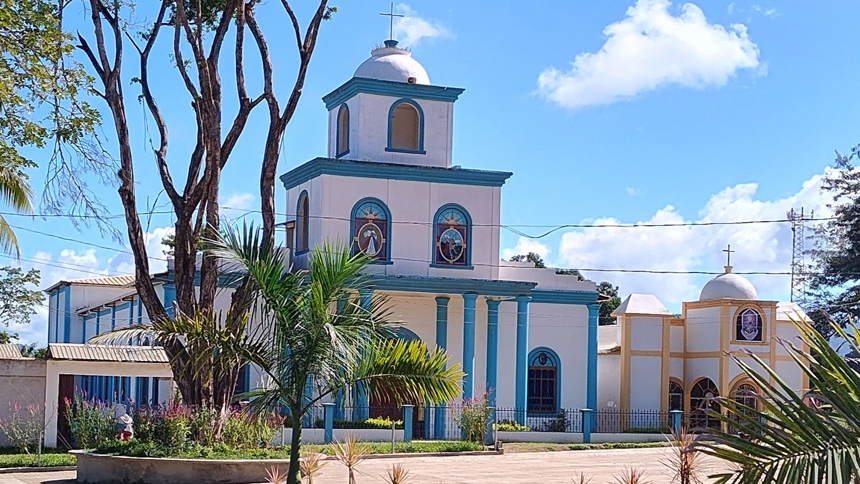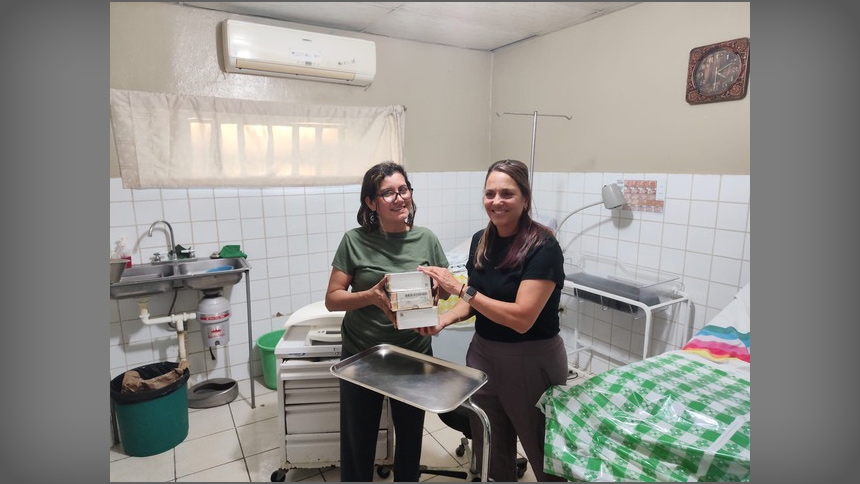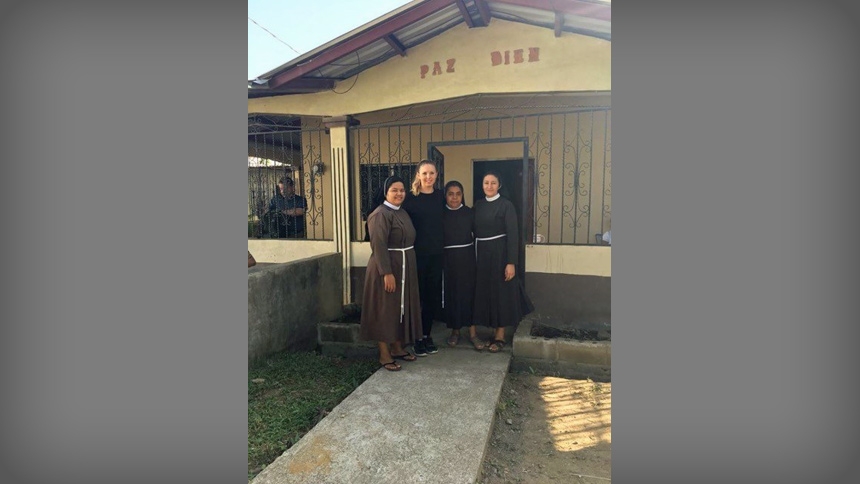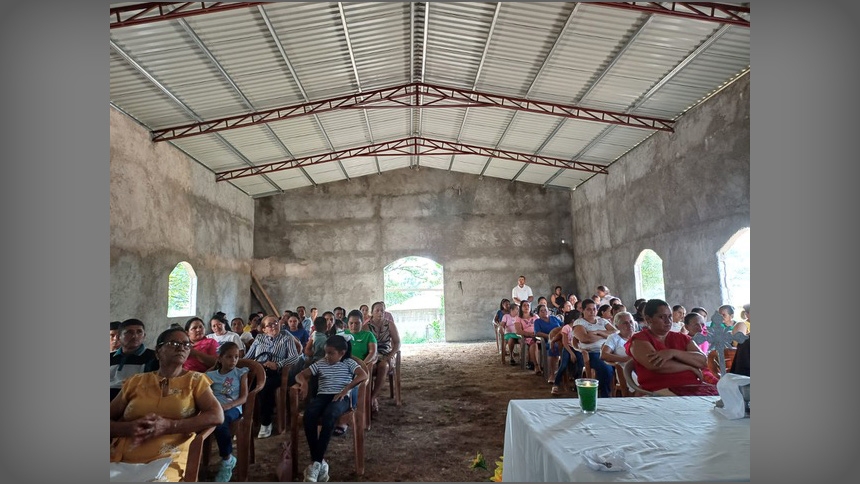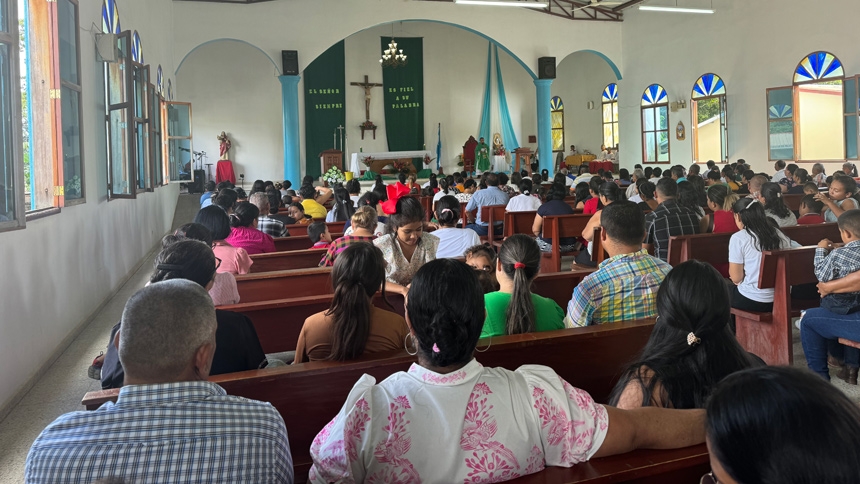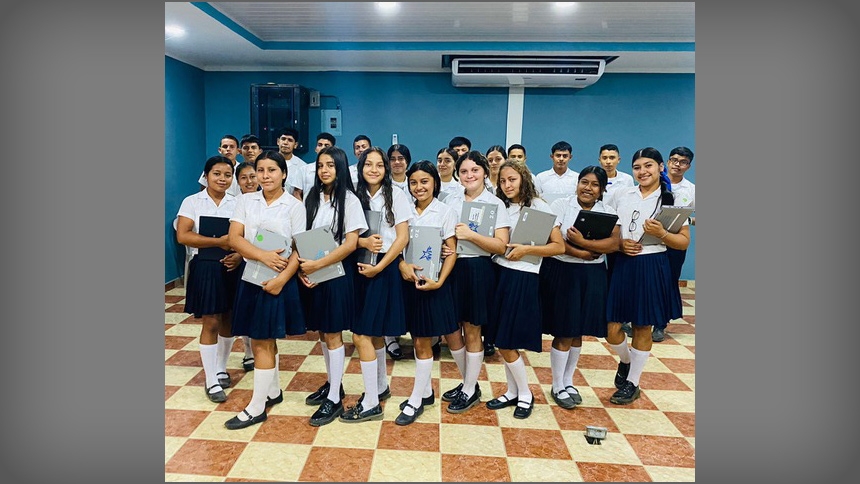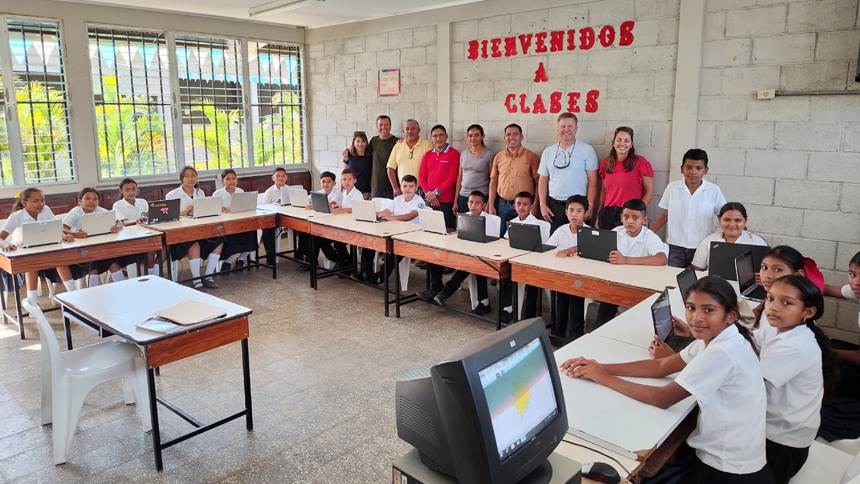
More than 25 years ago, Pope John Paul II challenged parishes in wealthy areas of the world to serve parishes in economically challenged countries. Monsignor John Wall took that challenge seriously.
From his Cary office, Monsignor Wall, [then] pastor of St. Michael the Archangel Parish, contacted Bishop Maurus Muldoon, O.F.M. in Honduras. The two agreed to pair St. Michael with Nuestra Señora de Suyapa Parish.
Mark Baric was one of four parishioners who made the first trip from Cary to visit Nuestra Señora de Suyapa. After landing at the closest airport, they rode in a truck for six hours on dusty roads through the jungle to Nueva Palestina, a small village close to the Nicaraguan border. Electricity was unreliable, running water sporadic, and indoor plumbing limited.
Most parishioners there were, and still are, subsistence farmers, earning less than $80 a month. Houses have porous roofs and dirt floors, which turn to mud when it rains. Smoke from wood-fueled ovens fills the houses, which can cause respiratory issues for children.
“They used to drink water directly out of the stream, which was full of parasites,” Baric said. “We actually witnessed an operation to remove worms from a young boy’s infection.”
The St. Michael group may have been wondering where to begin, considering the overwhelming needs.
A partnership for life
Given the area's overwhelming needs, the team chose to focus on four priorities — medical, agricultural, educational and spiritual. They worked directly with Hondurans to support the local parish and economy.
“When we help, it is in partnership,” said Luis Hernandez, another St. Michael parishioner and volunteer. “We provide materials; they provide the labor along with some local materials.”
To combat water-borne diseases, St. Michael financed 958 water filtration systems. The systems work by pouring water into a 15-inch square, concrete box. A bacterial scum forms at the top that eats parasites in the water, which is then strained through layers of sand and gravel. With financial help from Rotary International and Rotary Clubs local to Cary, the filtration systems are manufactured in Honduras, using local materials for easy maintenance.
“We drink the water when we are there,” Baric said. “It’s an amazingly simple, but effective system.”
Nueva Palestina has a local maternity clinic, but few resources. It’s expected for mothers to provide their own IVs and other medical supplies. Most give birth at home; those with complications are transported in the back of a pickup truck for hours through rough terrain to reach the closest hospital. Some do not make it.
St. Michael stepped in to provide the clinic with medicines, supplies and much-needed equipment.
“They don't have basic things,” Baric said. “Most of our medical supplies are focused on women and children, from vitamins to simple things like bandages, aspirin, Neosporin, toothpaste and toothbrushes.”
Another challenge is access to plentiful, nutritious food.
Through a partnership with N.C. State University, Hondurans from a local university built a model farm to teach agricultural practices. Each year, 20 farmers learn about seed selection, fertilizer, crop rotation and other practices. Production increased, allowing families to move beyond subsistence farming to planting fields of corn, soybeans and other crops — enough to trade with the community.
Other infrastructure projects sponsored by St. Michael included installing 568 latrines; 1,324 smokeless ovens; and 1,432 concrete floors and non-porous roofs in homes and other buildings.
“All those are really infrastructure for families and villages that help provide stability for health, and it's not just for one, two years,” Hernandez said. “It could be generations, because those things last a long time.”
The same is true for education.
On his first visit, Baric walked past a small schoolyard, lively with children. Later, as he sat talking to the parish priest, a different group of kids crowded around the window, peering in. Baric asked why they weren’t in school. The priest said that while the government provides free schooling, the kids need shoes, a uniform, a book bag and supplies — at the time about $75 a year per child. That’s unaffordable for a family making $600 a year.
“We sponsored 20 kids on the spot,” Baric said.
This year, St. Michael supports 846 students at a cost of $95 a child and has helped over 5,500 children access education in the past 25 years. They’ve also donated over 150 refurbished laptops — essential tools for learning, research and lesson planning.
St. Michael does all this on a budget of about $150,000 - $200,000 per year, raised mostly through parish fundraisers and supporting grants. Baric and Hernandez give all the credit for the ministry’s success to current and former team members, the pastors who have supported the project and the parishioners who continue to give their resources to support their sister parish.
Father Scott McCue, the current pastor at St. Michael, sees the relationship as an opportunity to connect his parish to the universal Church.
“The generosity of our parishioners has been tremendous,” he said. “Each time the appeal is made to support our sister parish, our people respond and share in the joy of knowing we are living our faith and truly helping ‘the least of our brothers and sisters.’”
Connecting through the spirit
Nuestra Señora de Suyapa Parish is about the size of Wake County, with 110 remote villages of varying sizes and with a total population of about 27,000 people. The priest rotates through the parish during the month to celebrate Mass, but also depends on lay people — “delegados” — to provide the Eucharist and catechism in remote villages.
Virgen de Suyapa is the main church in Nueva Palestina. St. Michael helped rebuild the church and the convent. The ministry also helped build a parish community center and 16 churches in the outlying villages. Donations provide bibles, prayer cards and rosaries as well as faith formation materials and support for youth programs managed by the Franciscan Sisters of the Parish Cooperators of the Assumption.
“The church is the center of their community,” Baric said. “They leave their humble homes and come to celebrate a two-hour Mass, then stay in fellowship for most of the afternoon. They are joyful, loving people with whom we have built strong relationships over many years. It’s an awesome experience, and a chance to live and share our faith.”
For Hernandez, it’s that spiritual connection between the two parishes that underpins the ministry.
“What I find refreshing — and allows me to continue to grow in my faith — is the incredible faith and love that our Honduran brothers and sisters have for St. Michael’s and Jesus Christ,” he said. “They pray for us. We pray for them. We give them hope.”
Photos


